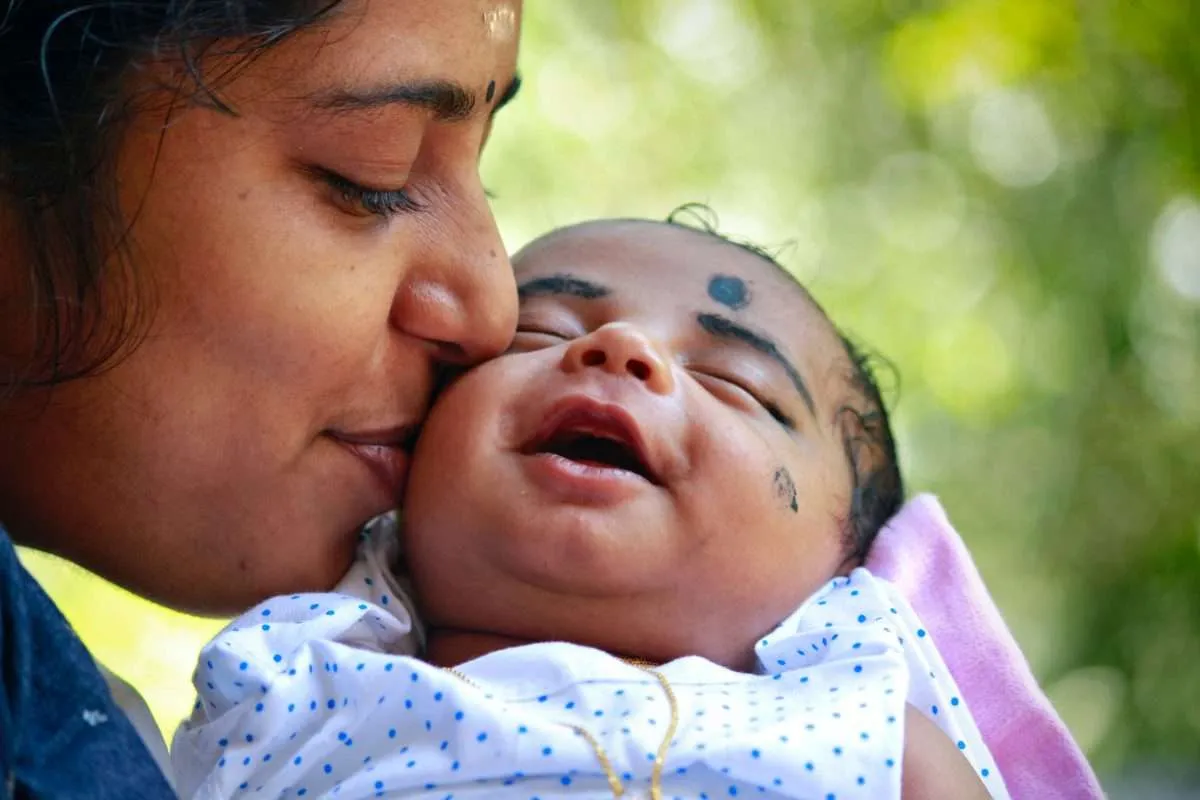Amrita Nandy’s Motherhood and Choice: Uncommon Mothers, Child Free Women is an engaging piece written from a feminist post-structuralist perspective. The book by Amrita Nandy addresses the hegemonic influence of the patriarchal notions of motherhood in our socio-cultural milieu. The work identifies heterogenous mothers constituting of ‘hegemonic mothers’ to ‘outliers of motherhood.’ The connotation of ‘outliers of motherhood’ refers to the unconventional mothers, who do not meet the hetero-normative and patriarchal construction of motherhood in the Indian context. The work explores the discursive construction of ‘motherhood’ and ‘mothering’ by also delineating its boundaries between the two through an extensive and insightful literaturereview and ethnographic work.
Narratives of Motherhood
Motherhood in Indian society is a patriarchal construct with dominant socio-cultural narratives of ideal motherhood that embraces femininity and hetero-normativity. The author draws on a diversity of literature from religious text to social sciences inorder to uncover the meta-narratives of motherhood and critique the dominant ‘motherhood archetype’ of India.
The schema of normative and non-normative mothers and the deconstruction of ‘mater-normativity’ is discussed in this work with theoretical and empirical substantiation. Pro-natalism, naturalization of motherhood, anti-natalism, choice, agency, subversion and subjectivity are the multiple themes discussed in the book drawing on the narratives from the mothers. The work fulfills the epistemological and ontological concerns as the first chapter engages the reader with details on the background and methodology adopted for the study. This work is contemporary and feminist with discourses on position of power and subjectivity through cultural narratives on motherhood moving beyond the knowledge on ‘binaries’.
The author draws on multiple sources from Hindu mythical literature and Social Sciences to strengthen her argument on ‘maternal subjectivity’ in the first chapter. A detailed account of the review of literature and feminist methodology discussed adds academic value to the piece as a source for understanding the ‘notion of motherhood and practice of mothering’ from a feminist lens.
The Naturalization and Normalization of Motherhood
The second chapter introduces the dominant paradigm of ‘mater-normativity’ coined by the author with thematic iteration on naturalization and normalization of motherhood, maternalization and construction of the ‘maternal subject.‘ The ‘maternal subject’ is constructed with fine nuance by drawing a discussion on motherhood from dominant religious thought, emergence of reproductive capitalism and politically enriched contestations of child care norms and welfare regulations at work in India.
The question of motherhood and ‘maternal subject’ is traced from colonial India to contemporary India enriched with discussions on worker-motherhood, the hetero-normative family, unwed motherhood and alternative sexualities from a rights-based approach. This chapter provides a fine entry into understanding the complex layers of meaning of ‘outliers of motherhood’ by drawing on the thetical and anti-thetical notions of ‘mater-normativity.’
Ethnographic Data and Analysis
The third chapter is novel stemming from an extensive ethnographic work and introduces the typologies of motherhood that is different from the notion of hegemonic motherhood such as, ‘child-free’ as euphemism for childless, ‘fence-sitters’ for delayed or ambivalent motherhood, ‘non-motherhood’ driven by ‘choice.’ The cultural narratives of motherhood embedded in this chapter discursively constructs the ‘maternal subject’ with a focus on decision-making surrounding non-motherhood, doing and undoing motherhood, maternal affect and maternal desires.
Capturing Outliers
The fourth and fifth chapter captures the outliers of hegemonic biological motherhood, non-biological motherhood, inspired by the post-colonial critique of mono-lithic understanding of the ‘subject’. This chapter discusses the struggles of normative motherhood to establishing discourses on adoption and surrogacy through real-life narratives from participants. The text is suffused with an element of discursive negotiation of power in the construction of ‘maternal subject’. The idealization of good/bad mother dichotomy, child-care labour, mothering in a brothel, long-distance mothering, motherhood-dilemma from paid employment provides valuable insights to the discursive construction of the ‘maternal subject’.
Non-Normative Family Structures
The next chapter’s focus on non-normative family comprising of unwed mothering, queer mothering throws light on the radical re-configuration of the notion of ‘normative family structures.’ The author has taken due care to avoid slippery fall into essentialism by focussing on the multiple layers of maternal ambivalence. Pertinent questions on the significance of ‘outlier agency’ posed as a ‘turn’ from the dominant cultural subscription to mater-normative ideologies by drawing scholarly reviews on subjectivity and agency is presented in this chapter.
Concluding with Questions
The chapter titled, ‘Questioning the Answers’ is at the axis of debates on the bio-centric demand that essentialize the notion of motherhood, the need to de-naturalize motherhood to halt the threatening growth of ART capitalism in creation of ‘natural’ families, the politics of ‘care-giving’ manifested in the arguments on child-care entitlements, child-care welfarist policies and de-centering mother’s care-giving situated around maternal ideologies.
This book promises the need for a paradigmatic shift from biological essentialism that upholds mater-normativity to the social acceptance of ‘outliers of motherhood’ in a pro-natalist society like India. The book is a glorified attempt to de-centre the celebration of biological motherhood in the backdrop of limited studies on ‘mothering’ and ‘motherhood.’
Motherhood and Choice: Uncommon Mothers, Child Free Women also provides an extensive, elaborate ethnographic account and strongly attempts to de-legitimize the patriarchal authority that defines motherhood in India. The work is commendable for it is one kind of an attempt to explore the diversities of motherhood by using the strategy of binary opposition and resistance to masculine hegemony.
The Personal is Political
The work provides the scope for feminist consciousness by engaging with the ‘personal is political’ discourse. More insights on political action and critical connections of chapters is required to enable the reader outside the academia to understand the vagaries of knowledge put together by the author through ethnographic narratives. The author deserves appreciation for providing comprehensive explanation of terms.
Final Reflections
Finally, I conclude by drawing connections to the earlier works on motherhood by authors Anu Aneja and Shubhangi Vaidya; Jasodhara Bagchi in Embodying motherhood: Perspectives from contemporary India and Interrogating Motherhood. The author has not delved adequately on the critical interrogation of ‘maternal ableism’ that was illustrated in Embodying motherhood: Perspectives from contemporary India with vociferous debates surrounding the abomination of mothers with disability in the society in different socio-cultural contexts.
The gaps in Bagchi’s work that had limited introspection on the marketized boom of ART capitalism is discussed in this book substantiated with extensive material sourced from adverstisements, newspapers and other textual materials.
The following is an excerpt from the book that captures its feminist underpinnings,
“…Regardless of whether a woman has children or not, both ‘choices’ are at once acutely personal political…”
Little Fires Everywhere: A Sociological Conversation
Advertising Disclosure: Some of the links in this article are affiliate links, which means we earn affiliate commission, at zero cost to you, if you click through the link and finalize a purchase.







